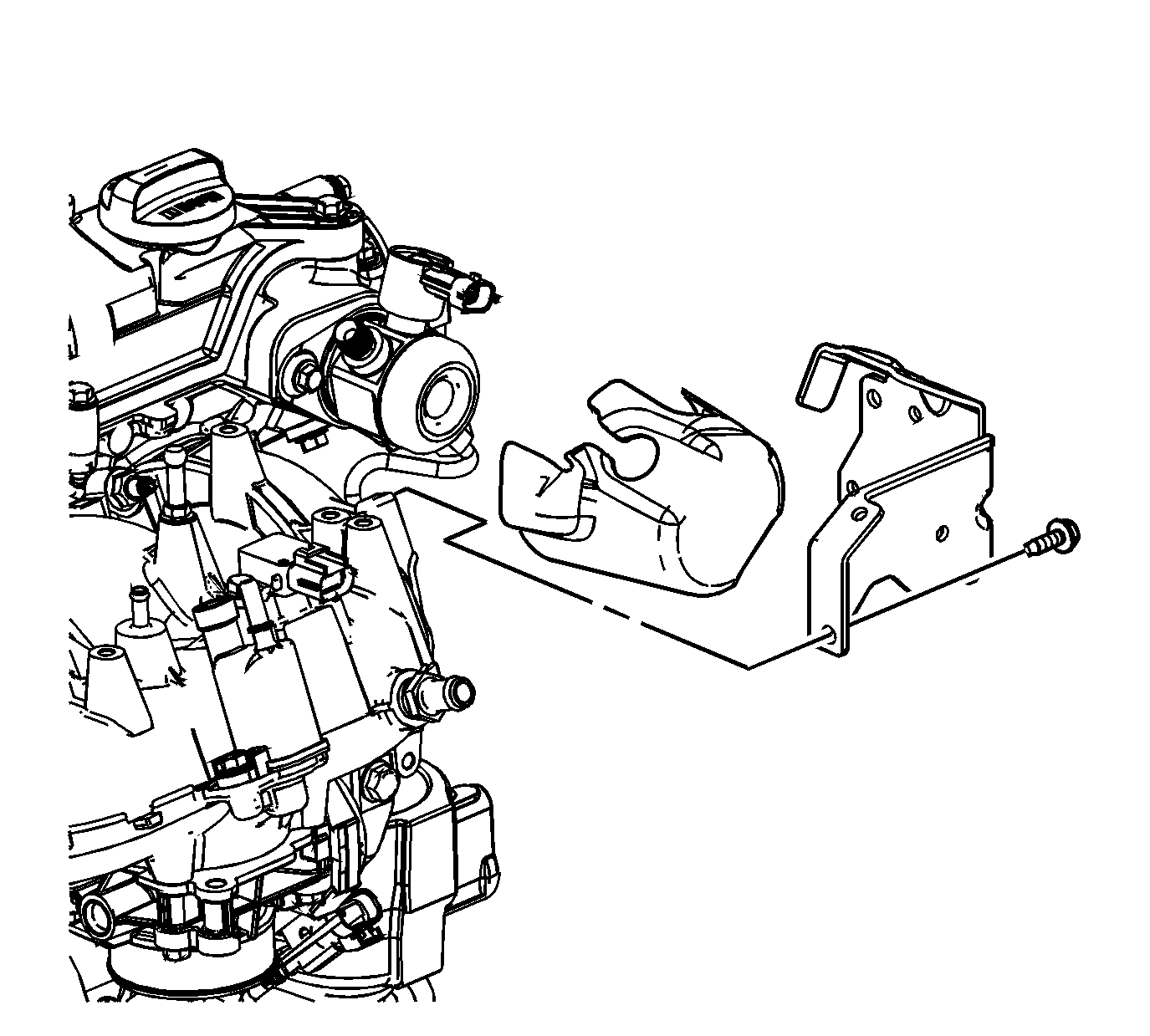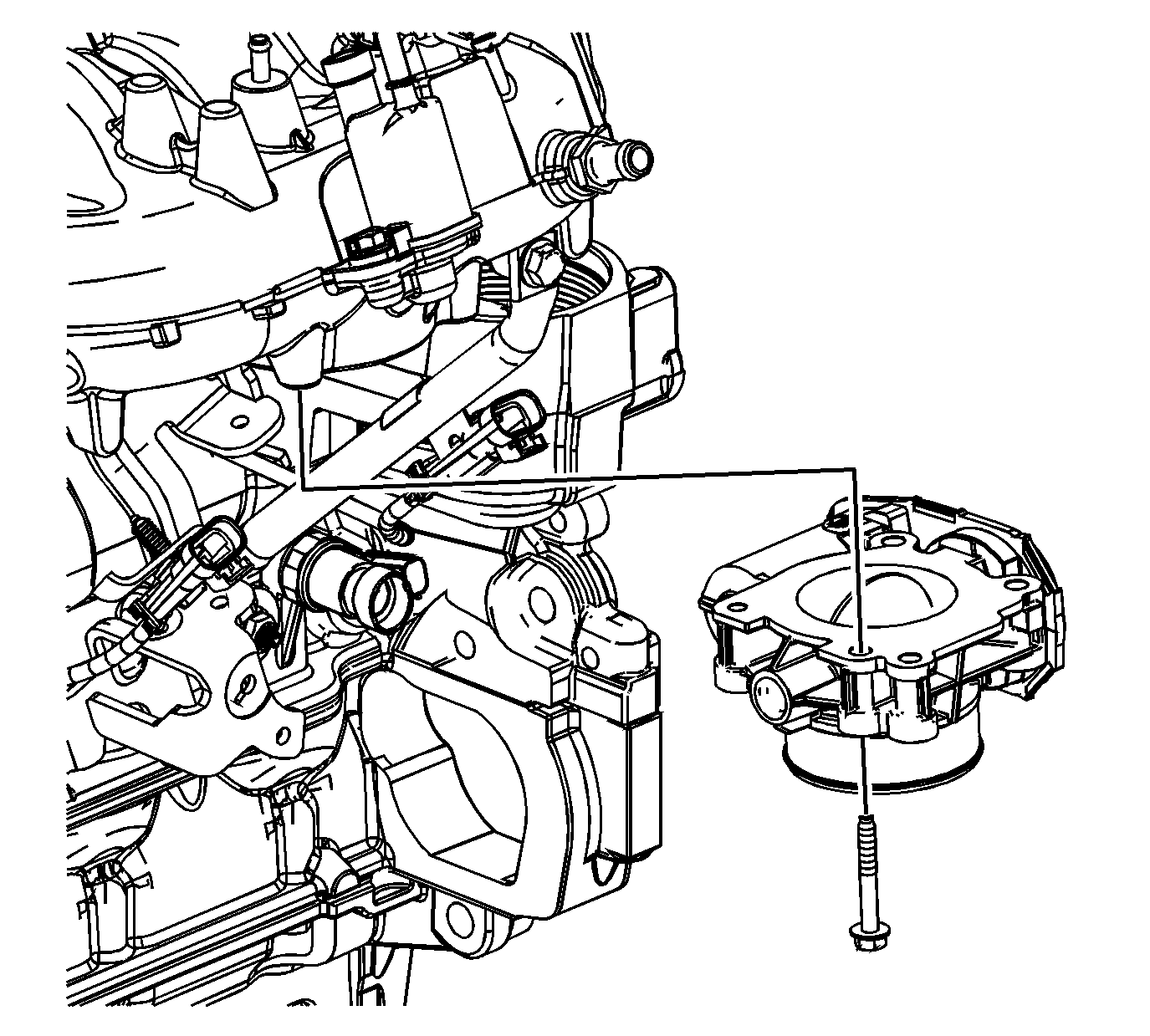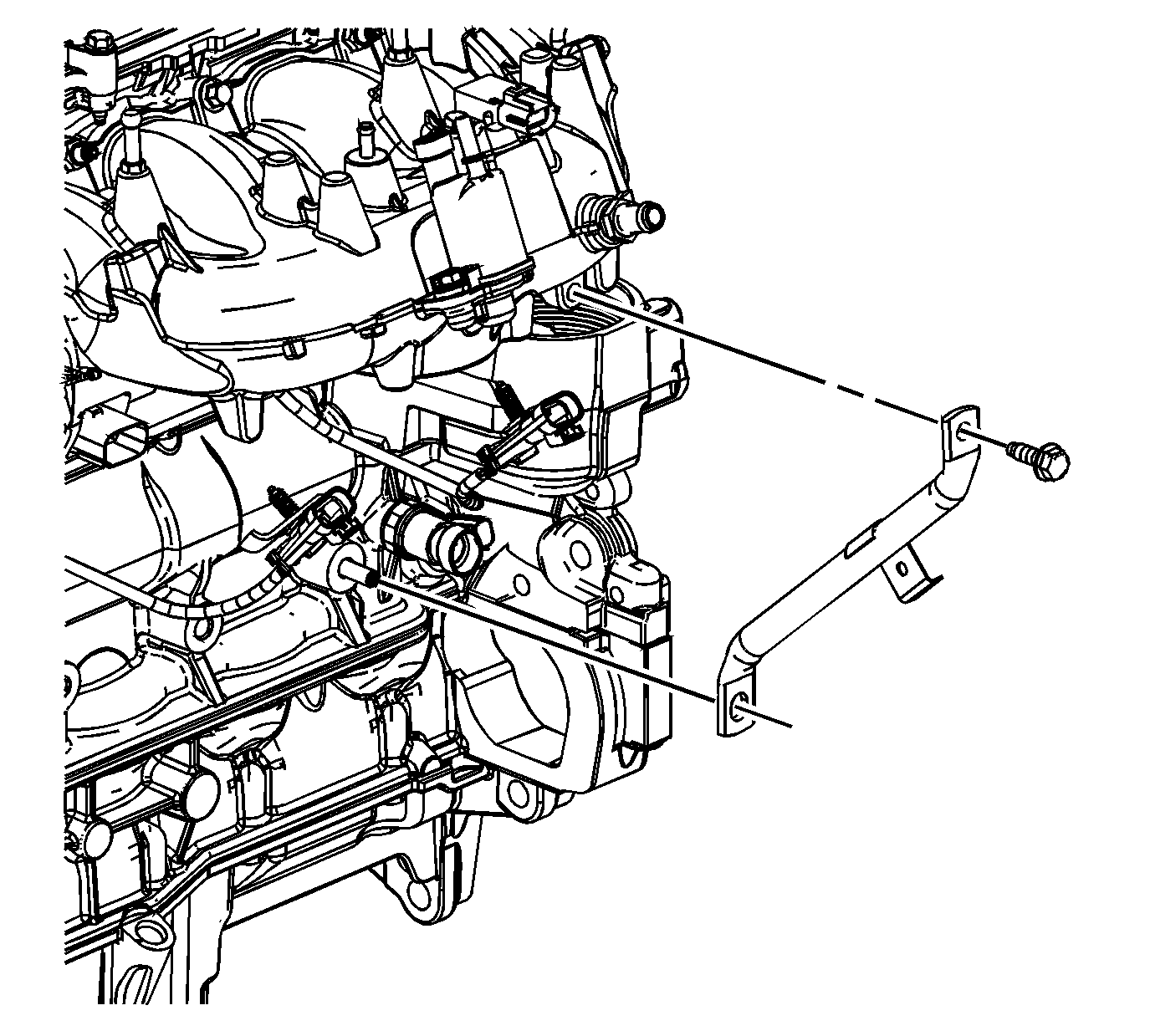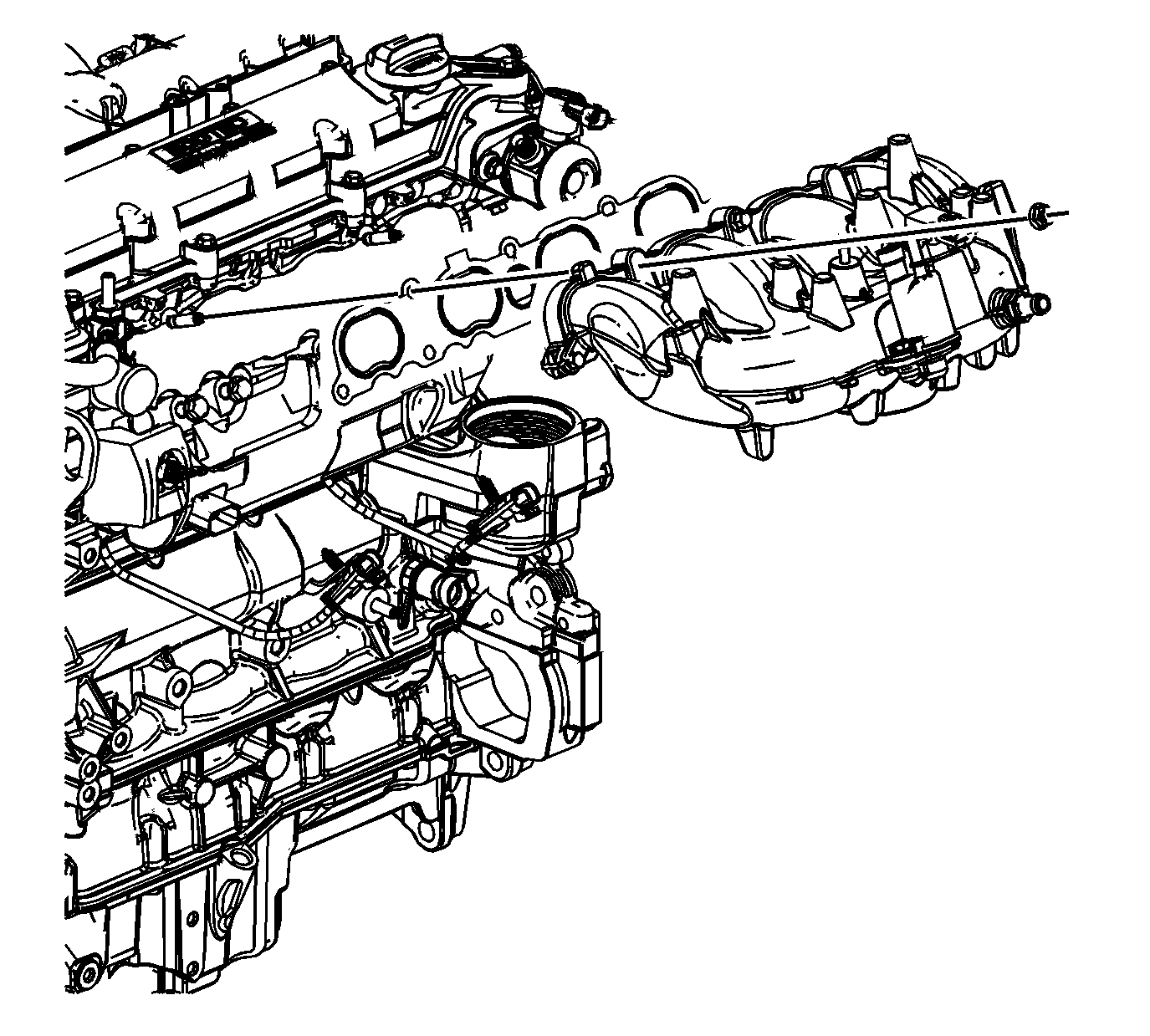For 1990-2009 cars only
- If the engine is equipped with a charger AIR bypass valve tank assembly, complete the following procedure:
- If the engine is equipped with a charger AIR bypass valve tank assembly, complete the following procedure:
- If the engine is not equipped with a charger AIR bypass valve tank assembly, complete the following procedure:
- Loosen and disconnect the fuel feed line tube nut.
- Remove the fuel feed line bolts.
- Remove the fuel feed line.
- Inspect the fuel feed line nut for damaged threads.
- Inspect the fuel feed line sealing bail for damage or debris.
- Replace the fuel feed line if any damage is found.
- Remove the high pressure fuel pump cover bolts.
- Remove the high pressure fuel pump cover.
- Remove the high pressure fuel pump noise insulator.
- Remove the throttle body bolts.
- Remove the throttle body.
- Disconnect the rear knock sensor from the intake manifold brace.
- Remove the intake manifold brace bolt.
- Remove the intake manifold brace.
- Remove the intake manifold bolts and nuts.
- Remove the intake manifold.
- Remove the intake manifold gasket.
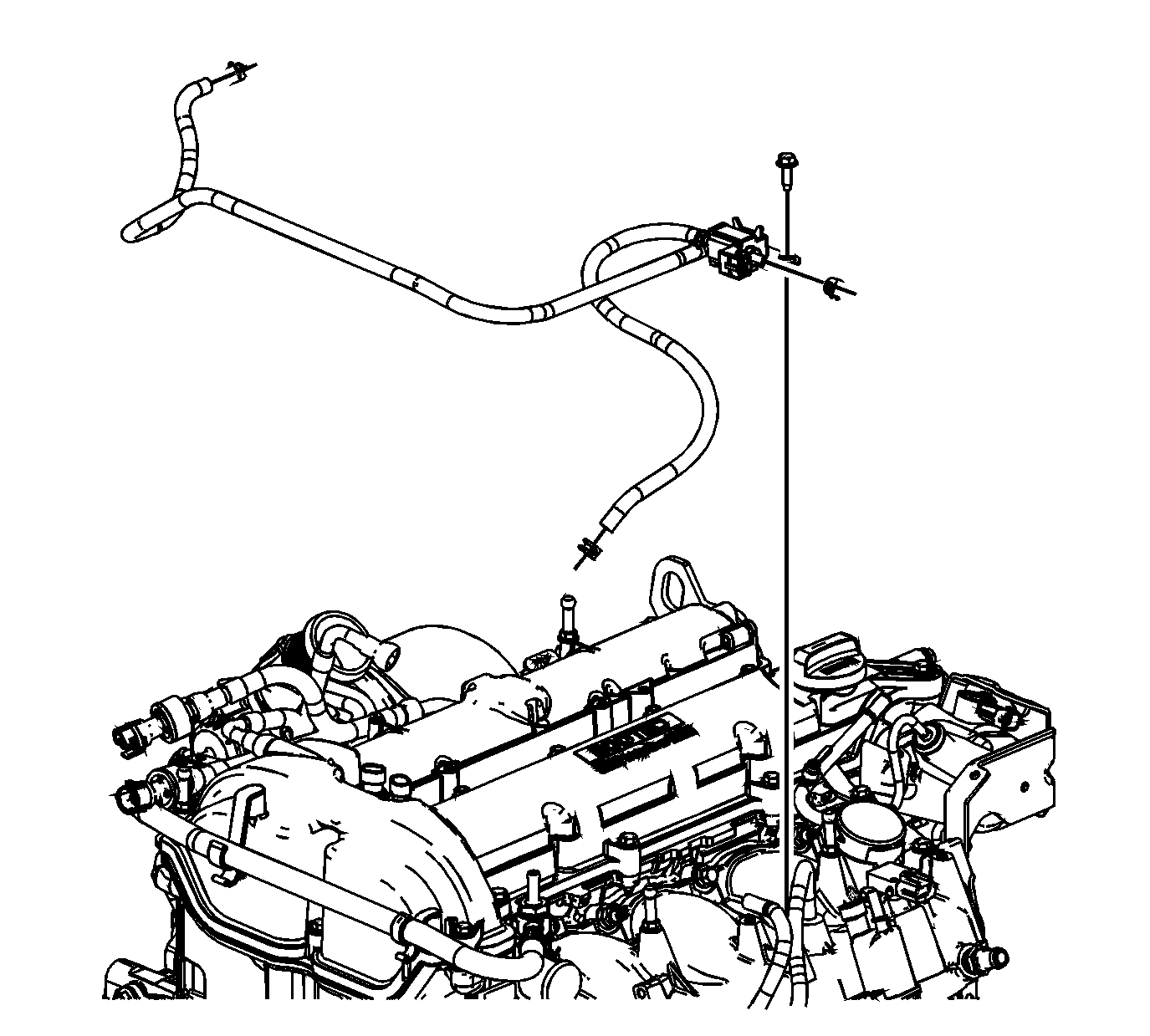
Notice: Never attempt to remove the intake manifold from a hot engine, allow the engine to cool to ambient temperature. The intake manifold is made of a composite plastic and can be damaged if it is removed when the engine is hot.
| Important: The charger AIR bypass tube assembly connected from the charger AIR bypass valve solenoid to the charger AIR bypass valve tank assembly is permanently attached to the tank assembly. Do not attempt to disconnect the charger AIR bypass tube assembly at the charger AIR bypass valve tank assembly. |
| 1.1. | Disconnect the charger AIR bypass tube with the retaining clip from the charger AIR bypass valve tank assembly. |
| 1.2. | Disconnect the remaining charger AIR bypass tubes at the turbocharger and vehicle. |
| 1.3. | Remove the charger AIR bypass valve solenoid bolts. |
| 1.4. | Remove the charger AIR bypass valve solenoid. |
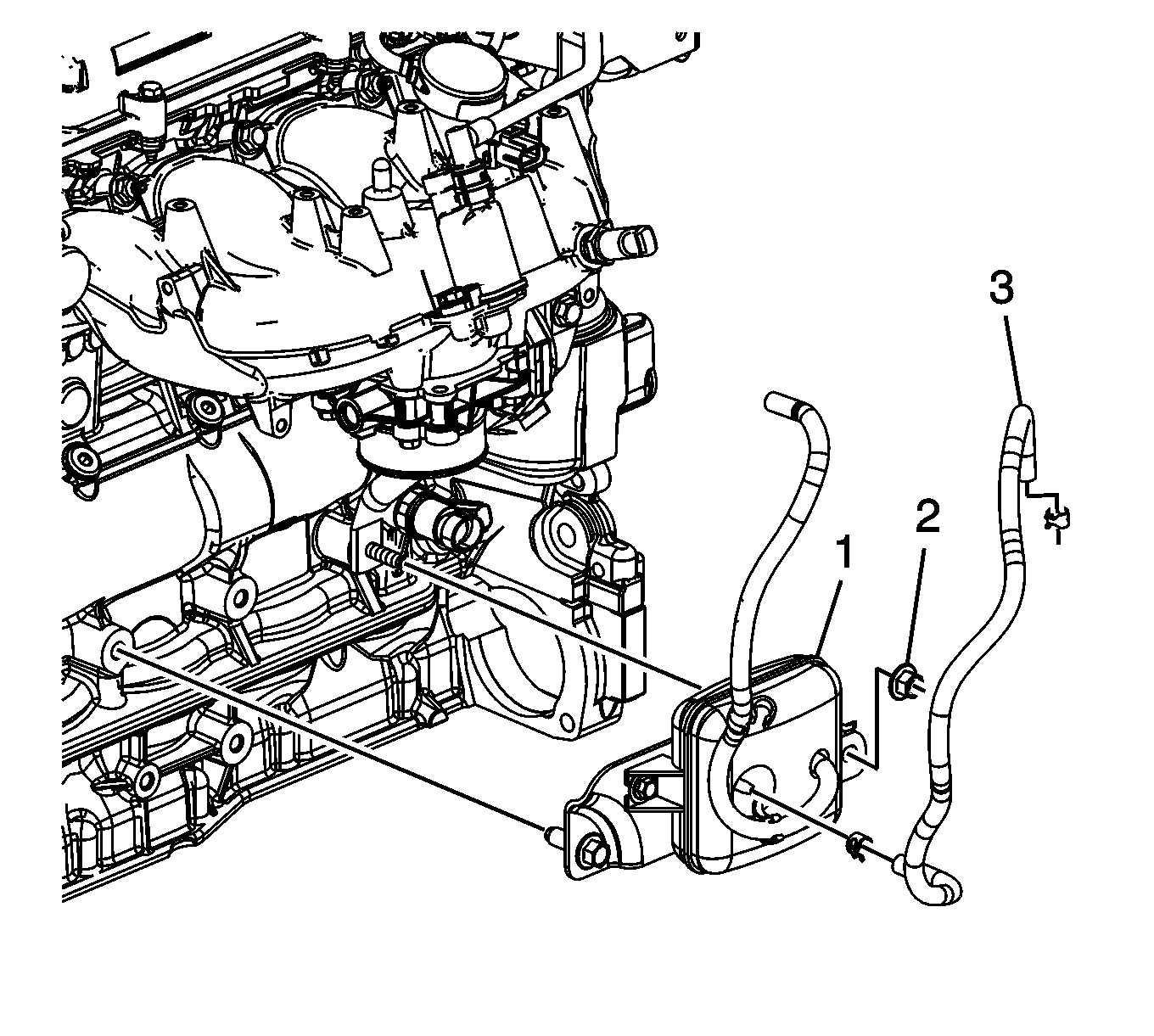
| 2.1. | Disconnect the charger AIR bypass tube assembly from the intake manifold. |
| 2.2. | Remove the charger AIR bypass valve tank assembly nut. |
| Important: The charger AIR bypass bolt is captured on the bracket and should not be removed from the bracket. Loosen the bolt only until it is no longer attached to the block when removing the charger AIR bypass valve tank assembly. |
| 2.3. | Loosen the charger AIR bypass valve tank assembly bolt. |
| 2.4. | Remove the charger AIR bypass valve tank assembly. |
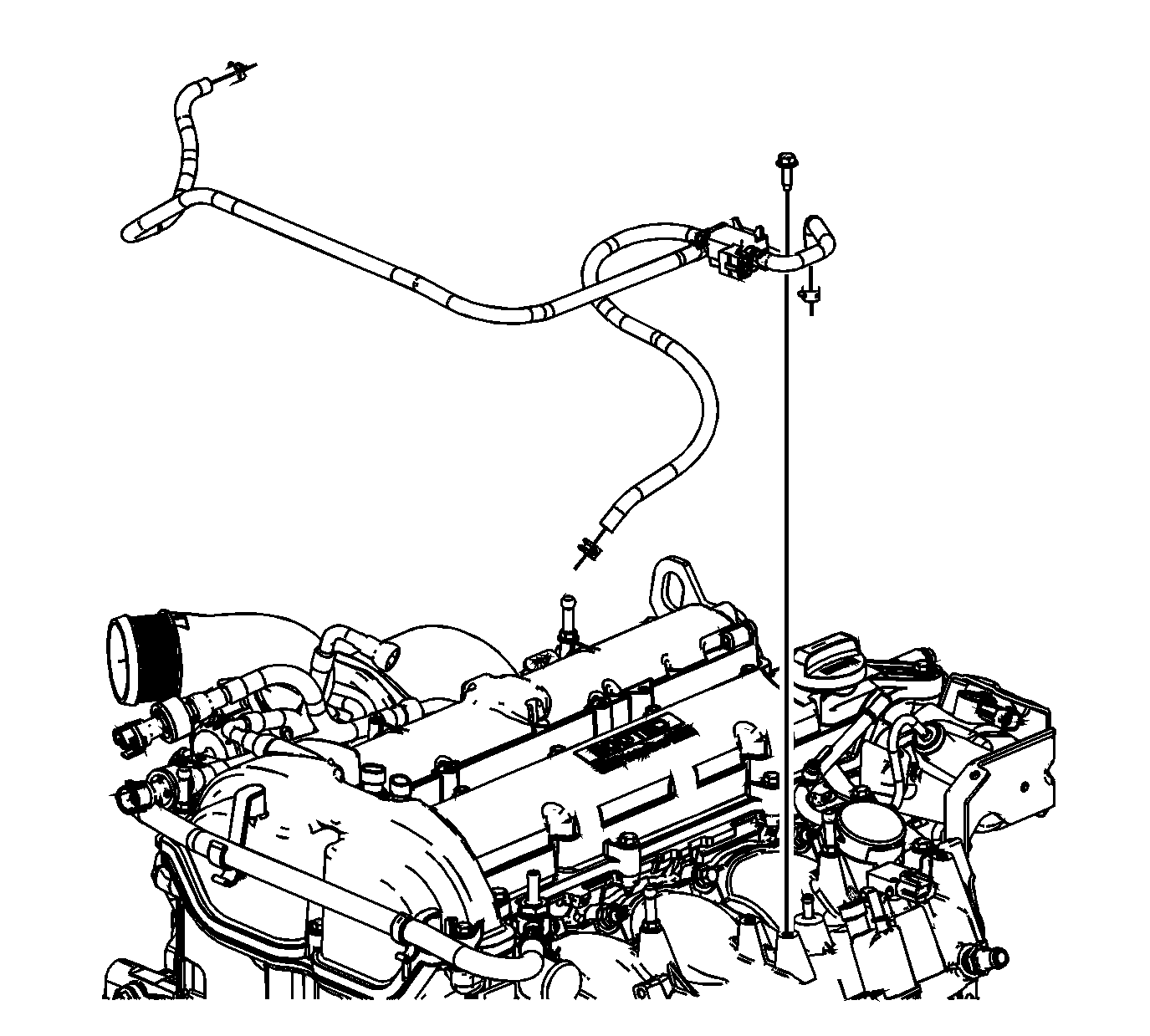
Notice: Never attempt to remove the intake manifold from a hot engine, allow the engine to cool to ambient temperature. The intake manifold is made of a composite plastic and can be damaged if it is removed when the engine is hot.
| 3.1. | Disconnect the charger AIR bypass valve solenoid tubes. |
| 3.2. | Remove the charger AIR bypass valve solenoid bolts. |
| 3.3. | Remove the charger AIR bypass valve solenoid with tubes. |
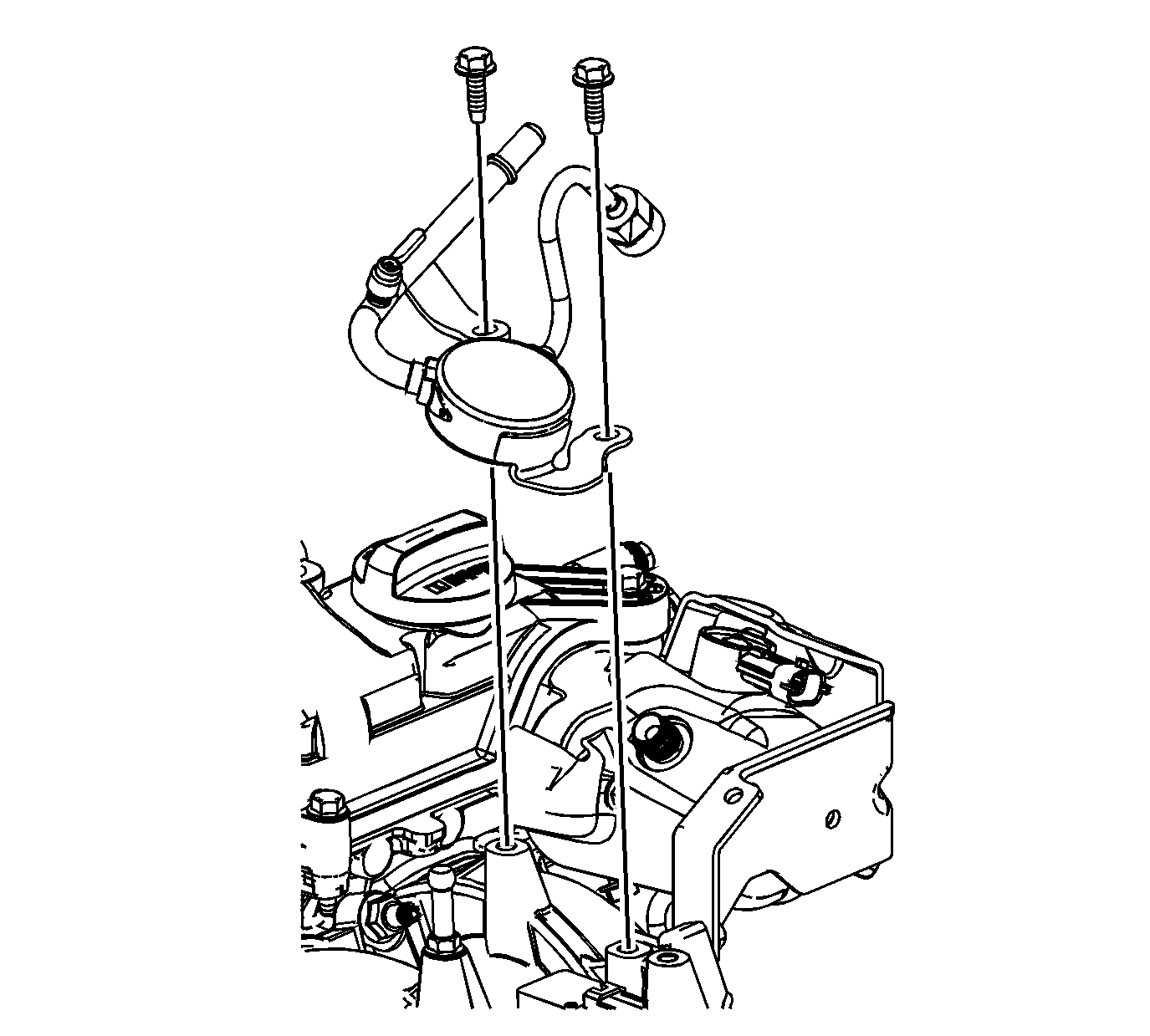
Caution: Fuel that flows out at high pressure can cause serious injury to the skin and eyes. ALWAYS depressurize the fuel system before removing components that are under high fuel pressure.
